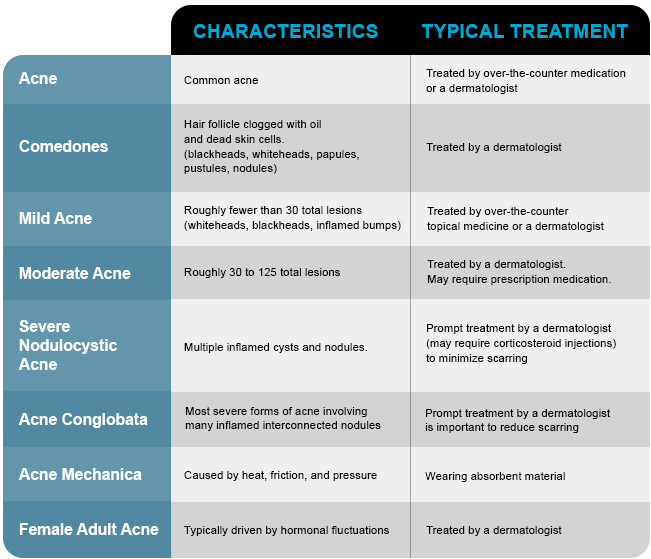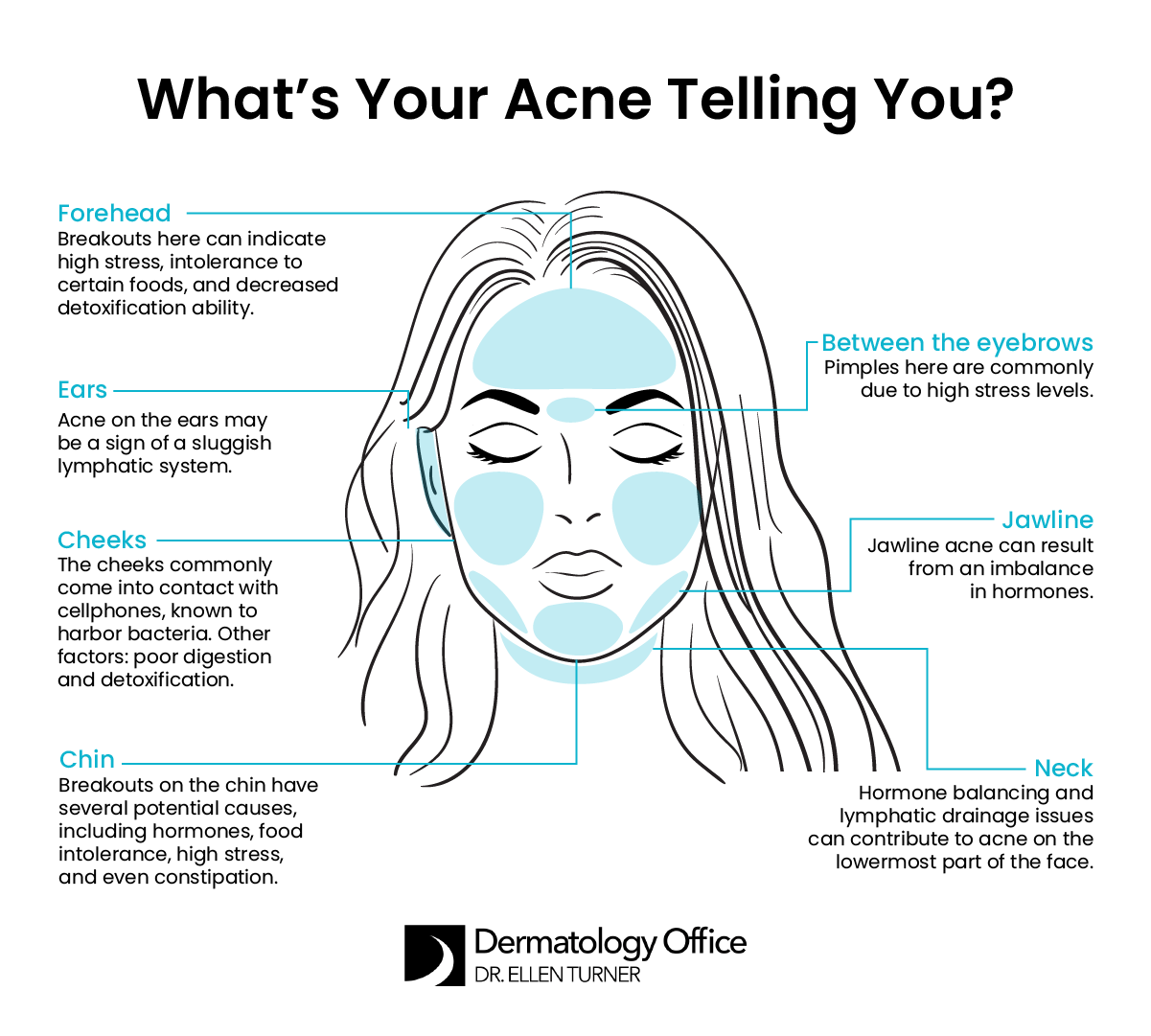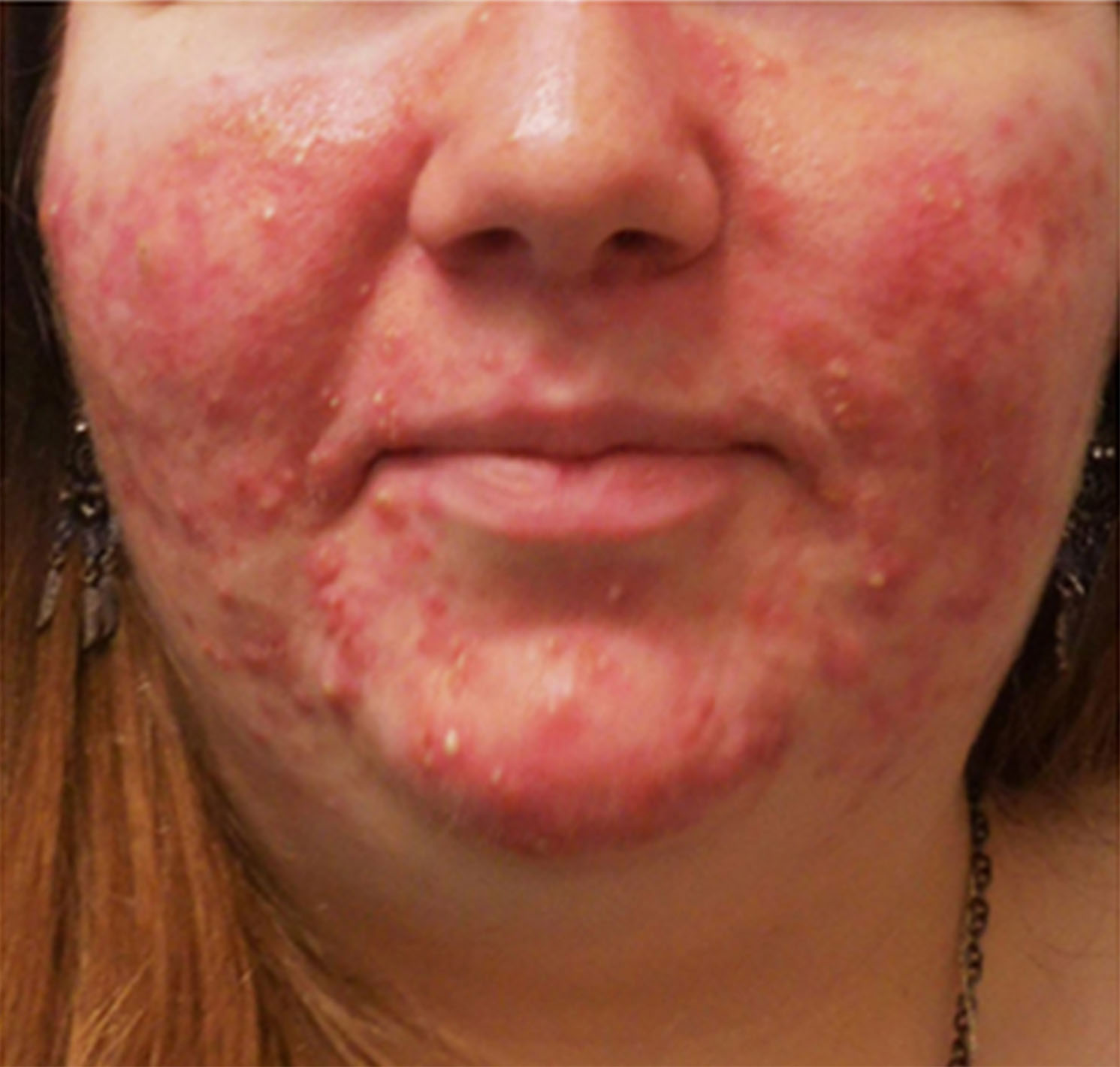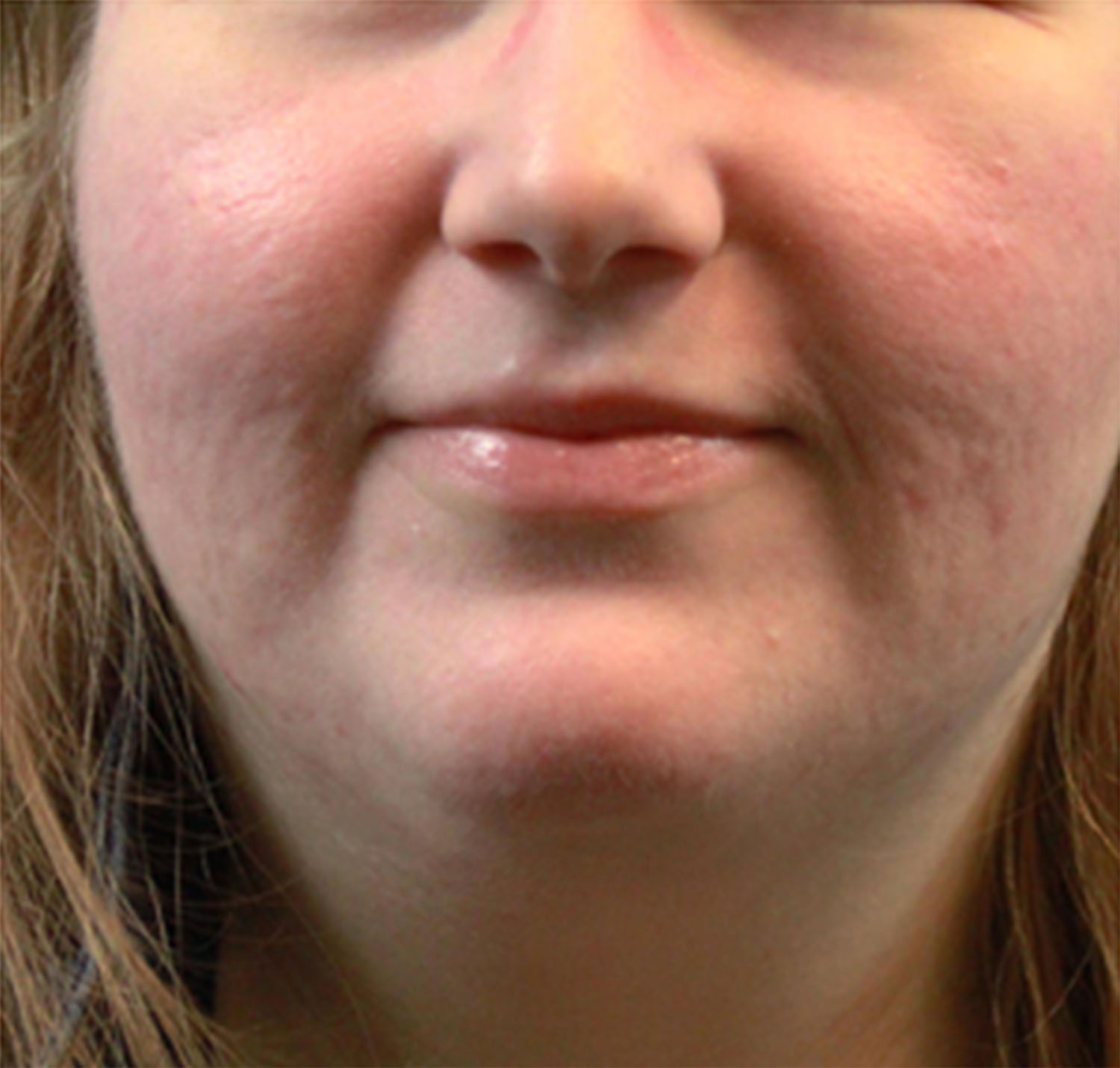Medical Dermatology
Acne
Get a Diagnosis and Effective Acne Treatment in Dallas and Irving
 Even though we all get the occasional pimple or blemish, patients with persistent acne in the Dallas area can find relief through proven treatments at the Dermatology Office.
Even though we all get the occasional pimple or blemish, patients with persistent acne in the Dallas area can find relief through proven treatments at the Dermatology Office.
Acne is the most common skin condition in the United States, where between 40 and 50 million Americans have skin problems to some degree. It occurs at any age, but most sufferers are teenagers and young adults.
Medical Dermatology
Book an appointment online or call (214) 373-7546 to schedule an appointment to see us for acne treatment in our Dallas or Irving locations.

Patients dealing with acne in and around Houston should know the severity of their condition, which determines the possible treatment. Dr. Ellen Turner and her team will make a diagnosis and suggest the next steps.
What Causes Acne?
Research shows four key players are involved in the formation of acne: excess oil, clogged pores, bacteria, and inflammation.
The excess oil is sebum, which our bodies make to prevent the skin from drying out. Sebum increases dramatically during adolescence when hormones known as androgens spur production into overdrive. If excess sebum cannot flow to the skin’s surface, clogged pores result. P. acnes, a bacteria found on everyone’s skin, flourishes in the excess oil and results in inflammation.
While acne is not caused by specific foods, certain foods may make some people’s conditions worse. If certain foods seem to worsen the problem, try to avoid them. Currently, the only scientific studies that correlate diet with acne show that sugar can promote or worsen the condition.
Research has shown some of the following items can trigger or worsen acne symptoms
-
- Heredity/genetics
- Fluctuating hormone levels
- Menstruation
- Picking at sores
- Wearing tight clothing, helmets, and headgear
- Stress that increases cortisol levels
- Oily or greasy personal care products

Various—and possibly surprising!—factors can contribute to acne. The Dallas area’s Dr. Ellen Turner highlights what can cause breakouts on the face, from the forehead to the chin and neck. Common problems leading to pimples are detoxification and lymphatic system issues, stress, diet, and more.
What Are the Best Acne Treatments in the Dallas area?
Pimples and similar skin blemishes can have a negative impact on your self esteem. Dr. Ellen Turner recommends that acne be properly treated, especially when it’s severe and is not improving. Treatment should continue as long as needed to prevent the problem from becoming worse or recurring.
Note that excessive washing and scrubbing can irritate the skin, so Dr. Turner recommends gentle cleansing twice a day with a mild cleanser and lukewarm water. This helps remove excess sebum, which is crucial for controlling breakouts.
Although seeing results right away would be great, successful acne treatment does not work overnight. Instead, it is a process that requires follow-up appointments to determine and adjust your treatments to your particular skin type. Expect six to 12 weeks for results.
While waiting for a treatment to work, it can be tempting to squeeze lesions to get rid of them. Dr. Turner does not recommend this. Picking, scratching, popping, and squeezing can make the lesions worse and cause scars.
Dr. Turner and her staff can offer many effective treatments. Before recommending a treatment plan, many factors are considered, including your gender, your age, and the severity of your condition. For women, other considerations are whether you are pregnant, nursing, or trying to become pregnant. Before starting any treatment, be sure to tell Dr. Turner if any of these conditions apply. This information will help her to create an appropriate treatment plan.
Type and Severity of Acne
Non-inflammatory acne is referred to in the general dermatology community as comedonal. This category includes blackheads and whiteheads.
Inflammatory acne appears as papules (bumps), pustules, cysts, or nodules. More severe cases are characterized by cysts and nodules and can cause scarring. Severe cases should be treated quickly and aggressively.
The best treatment method for the condition depends on its severity. A mild form is easier to manage and can be treated with over-the-counter topical medications, while moderate to severe acne is much more difficult to treat and may require prescription medications.
Acne can be classified as several different subtypes, including:
-
-
- Acne Vulgaris, which is the most common, typical form that includes most flareups
- Acne Mechanica, which is common among athletes and caused by a combination of excess heat, pressure, and friction on the skin
- Acne Cosmetica, which is caused by cosmetics such as makeup and creams
- Excoriated Acne, which develops due to excessive picking or scratching at blemishes to the point of wounding the skin
-
Common Symptoms of Acne
This skin condition typically occurs on the face, forehead, chest, upper back, and shoulders, but it can also appear elsewhere. The type of acne symptoms you have will vary depending on its severity. Some of the most common symptoms associated with this condition include:
Whiteheads
Closed bumps on the surface of the skin that are blocked with excess oil and dead skin are called whiteheads. These small, round spots with a white or yellowish appearance develop under the surface.
Blackheads
Blackheads are open plugged pores where excess oil and dead skin have accumulated. It may look as if the dark spots are caused by dirt, but the black color actually is caused by an irregular reflection of light on the open pores that allow air to come into contact with the trapped material. Blackheads have a similar look to whiteheads, and both of these symptoms can be treated with the same kinds of over-the-counter medications.
Papules
Small red or pink bumps that become inflamed and feel sensitive or tender to the touch are what are referred to as papules. These occur when pores become clogged with bacteria and an inflammatory response occurs.
Pustules
Pustules, otherwise known as pimples, are inflamed papules clogged with pus that contains oil, bacteria, and dead cells. These bumps often feel sensitive to the touch, and scarring or dark spots may occur if you scratch or pick at them. Pustules may look like whiteheads surrounded with red rings.
Nodules
Large, hard pimples or bumps that develop in the deeper part of the skin and feel painful are known as nodules. This more severe type of acne can cause scarring because it involves deeper layers.
Cysts
Cysts are the most severe form of acne, penetrating deep into the skin. These often painful, pus-filled bumps look similar to boils and may cause scars.
Topical Acne Treatments in the Dallas area
Topical treatment is the standard of care for mild cases. Some available and common topical medications include benzoyl peroxide, antibiotics, retinoids, and salicylic acid. Topical medications come in many forms, including gels, lotions and creams. Dr. Turner will determine the most appropriate form for your skin.
Medical Dermatology
Book an appointment online or call (214) 373-7546 to schedule an appointment to see us for diagnosis and treatment of acne in our Dallas or Irving locations.
Special Acne Treatments in the Dallas Area
Oral antibiotics are the standard of care in managing acne that is moderate to severe, is resistant to topical therapy, and/or covers a large area of the body. Oral antibiotics that may be prescribed to treat acne include tetracycline, doxycycline, minocycline, erythromycin, trimethoprim-sulfamethoxazole, trimethoprim, and azithromycin. Combination therapy (the use of two or more therapies) including oral antibiotics and topical medication (often retinoids) may help treat acne.
For female adult patients, one medication Dr. Turner often recommends is spironolactone. Many patients consider it the “miracle drug.” When used at low doses, such as 50 to 150mg per day, the androgen hormones are not cycling so rapidly, which in turn helps to relieve cystic acne, especially located on the lower cheeks, jawline, and neck regions. Interestingly, spironolactone is an older drug that has been used since the ’50s, but at different doses, it acts by a completely different mechanism. Thus, it is as though it is two completely different medications, depending on the dose, but it has the same name. The only negative aspect of spironolactone dosing at these levels is that a woman should never get pregnant while medicating with this.
For adult women, spironolactone is preferred over oral antibiotics since women with adult acne will likely have this condition at least until menopause, and starting and stopping an oral antibiotic over many years could potentially contribute to drug resistance and decreased microbial response. Spironolactone is safe to use on an ongoing basis once the correct dose is determined. It is advisable to check a potassium level at the 150mg dosing.
Dermatology Office
Meet Dr. Ellen Turner
Dr. Ellen Turner and her staff at the Dermatology Office strive to work within a space where compassion meets technology to obtain top results for Dallas patients.


Lastly, it is important to incorporate topical medications such as retinoids, topical antibiotics, and topical anti-inflammatory agents to better resolve and control adult acne. Added benefits such as anti-aging with the use of topical retinoids are a plus as well. Thus, there is hope for adult female acne. Birth control pills that contain estrogen or medications that decrease the effects of male hormones (antiandrogens) may help certain women. Some birth control pills have been approved for the treatment of acne. Dr. Turner can help you determine if this is an effective treatment option for you.
Corticosteroid injections may be used to treat large and painful lesions. These injections can ease the pain and help clear a large lesion more quickly. A systemic acne treatment that you may have heard about is isotretinoin (aka Accutane). This is the only medication approved by the U.S. Food and Drug Administration (FDA) to treat severe resistant nodular cystic acne, the most severe form. Dr. Turner does use Accutane in appropriate patients, however, it is typically a five- to six-month course of therapy, which requires monthly office visits.
Acne Scar Treatment in the Dallas Area
Research advances have led to a variety of treatments for scarring caused by breakouts. Dr. Turner has had outstanding success rates with Fraxel®, a non-ablative laser used for resurfacing in a series of four to five treatments. The more recent and advanced Sciton® HALO™ provides dual resurfacing benefits by blending ablative and non-ablative technologies. This allows for highly customized treatments that also reduce recovery time.
Note that before scars can be treated by laser acne scar removal, the condition itself must be under good control.
Acne scars can also sometimes be treated using dermal fillers, such as those made from hyaluronic acid, which may improve the skin’s contour and reduce deep depressions or pockmarks in the skin.
Proper Care is Necessary
Proper acne treatment can prevent and/or improve scars and help you to feel and look your best. Seeing a dermatologist like Dr. Turner helps ensure that you are getting the most effective treatment available since she makes outstanding patient care a priority. This means she listens to patients’ concerns and chooses appropriate therapies for each individual. A consultation with Dr. Turner will be comfortable, informative, and respectful. To schedule a visit to discuss therapeutic options, you can book an appointment online or call the office to make an appointment at (214) 373-7546.
Download our Acne Care Sheet.
How Much Does Acne Treatment Cost?
Treatment costs vary based on the specific method used and the extent of treatment recommended by Dr. Turner.



